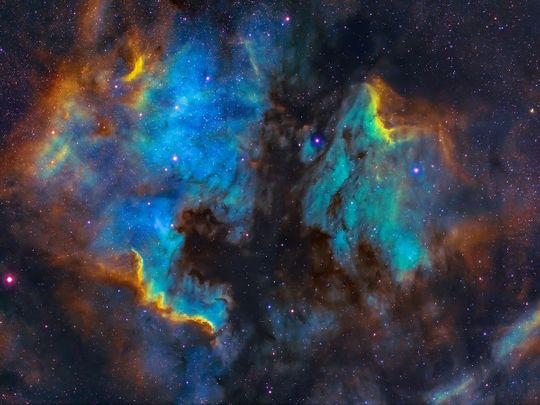
American astronaut Jim Lovell once described how humbled he felt when viewing the Earth from space for the first time: “You can put your thumb up to the window and hide the Earth behind your thumb. Everything that you have ever known – all those arguments and wars – all behind your thumb.”
Click start to play today’s Word Search, where you can find “scale” and other measurement related terms.
The universe is enormous, and the Earth is just a speck in one of its many galaxies. It can be difficult to imagine that the vast, seemingly endless cosmos grows older or that it is a certain number of years old.
But in 1929, Edwin Hubble provided the first observational evidence that the universe had a finite age. He used the largest telescope available at the time to discover that the further away a galaxy is from us, the faster it appears to be receding into space. In other words, the universe is expanding.
Hubble determined the expansion rate, called the Hubble constant – and with it, astronomers are able to rewind and calculate the precise age of the universe. However, the age was only as consistent as the accuracy of measurement tools and units.
When the Hubble Space Telescope was launched in 1990, the uncertainty over the universe’s expansion rate was off by a factor of two, according to the US-based Space Telescope Science Institute. While that seems like a small adjustment, it meant the universe could be as young as 9.7 billion years or as old as 19.5 billion years. And if it was the former, it posed a problem – it would mean the universe was younger than the oldest known stars.
By 1994, astronomers began refining the Hubble constant by calculating the distance to the Virgo cluster of galaxies, about 56 million lightyears away. By the end of the 1990s, the Hubble constant was reduced to an error of only about 10 per cent, and by 2019, it had come down to less than 2 per cent.
Scientists concluded in 2019 that the universe is 13.77 billion years old (plus or minus 40 million years). In comparison, the Earth is a fresh-faced 4.54 billion years old!
Are you blown away by the ancient, expanding universe? Play today’s Word Search and tell us at games@gulfnews.com.



